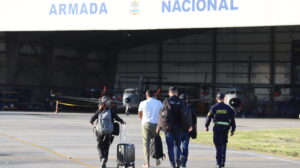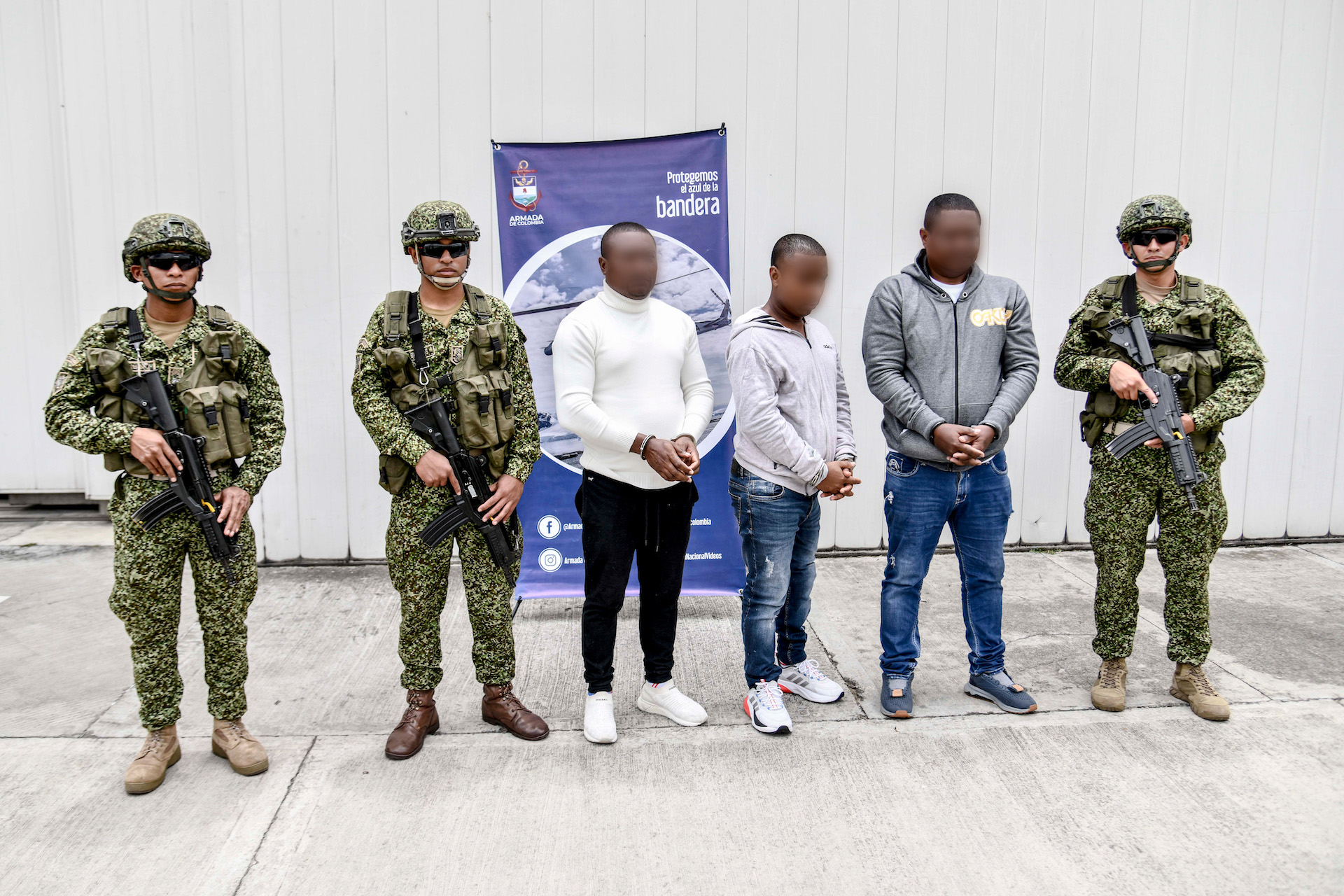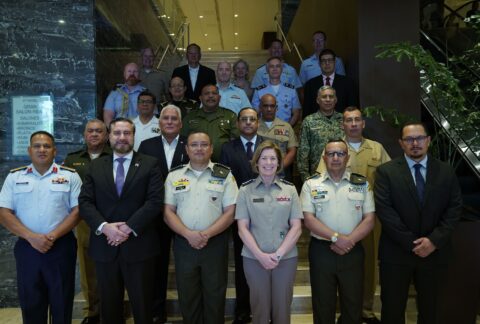“Seize the maximum amount of cocaine possible on the seas, in the ports, and on the rivers,” was the order Colombian President Gustavo Petro gave the Colombian Navy on June 2, during a promotion ceremony for naval officers. “We have to destroy illicit economies and the Navy has a great mission in this path, both in rivers and seas: Seize and carry out interdiction operations.”
In the course of 2023, up to June 5, the Colombian Navy seized 138,093 kilograms of cocaine and 48,545 kg of marijuana and destroyed 386 laboratories. It also captured 351 people for narcotrafficking and seized 141 means of transport, including 13 semi-submersibles.
Among these results, the dismantling at the end of April of a transnational drug trafficking organization in the Colombian Pacific, which produced cocaine and built semi-submersibles to move it, stands out. The operation, carried out between the Colombian Navy and the U.S. Drug Enforcement Administration, led to the simultaneous capture of 10 people in Colombia and two in the United States.
“The operation, which was achieved through international cooperation, was carried out in Colombia in the departments of Valle del Cauca, Cauca, and Putumayo, and in the U.S. in the city of New York, thus managing to dismantle this transnational criminal group dedicated to narcotrafficking,” Colombian Navy Vice Admiral Orlando Grisales Franceschi, chief of Naval Operations Staff, told the press.
“Five of these individuals are wanted for extradition by the U.S. government for crimes related to narcotrafficking, among them is alias Aleido, who was responsible for supervising both the construction of the motorboats and the processing of narcotics and their shipment to international territory,” Vice Adm. Grisales told Diálogo.

Authorities had already previously captured Alias Aleido for narcotrafficking who had appeared in March 2019 before the Special Jurisdiction for Peace, which was created following the Peace Agreement between the Colombian government and the Revolutionary Armed Forces of Colombia to reintegrate guerrilla members into civilian life. Also captured in New York was his brother, alias Tulio Peña, considered his right-hand man, who was in charge of supervising the construction of the boats, and who held a public position as a councilman in Charco, Nariño.
Authorities also captured alias Carlina, a possible finance coordinator, and alias Thiago, who was in charge of obtaining information on the location and movement of the Military Forces, the Colombian Navy said in a statement. “Among those captured was the leader of the organization, alias Román, who was in charge of coordinating logistics and obtaining the basic elements for the production, packaging, and transport of the drug, as well as the components for the construction of semi-submersibles, devices meant for drug trafficking from the southwest of Colombia to Central America and the United States,” Vice Adm. Grisales said.
The dismantled organization was in charge of producing and processing coca base paste in artisanal laboratories located in the department of Cauca, where members of the group produced cocaine hydrochloride to transport it in semi-submersibles. They were also currently teaching drug trafficking organizations on the Atlantic coast how to build these structures to transport large cocaine shipments to North America and Europe, the naval institution said in a statement. In the last two years, the Colombian Navy seized 12 tons of cocaine hydrochloride from this organization, seven semi-submersibles at sea, one semi-submersible under construction, and destroyed two drug processing laboratories.
Another important blow to drug trafficking groups was the capture of Jhormen Jesús Mosquera Quinto, alias Jhormen, in the urban area of Turbo, Antioquia, in mid-April. According to the Navy, alias Jhormen, who belonged to a criminal group at the service of the Clan del Golfo, was in charge of financing, stockpiling, and transporting drugs from the Gulf of Urabá and the coasts of the departments of Córdoba and Sucre, the Navy’s Caribbean Naval Force reported.
“In an inter-institutional operation between the Attorney General’s Office, CTI [Technical Investigation Corps] and the National Navy, through the Caribbean Naval Force, we captured the subject alias Jhormen Monquera,” Colombian Navy Vice Admiral Hernando Enrique Mattos Dager, commander of the Caribbean Naval Force, told the media. “This person was captured for extradition purposes in the municipality of Turbo in compliance with this order of the Court of Missouri.”
This capture deals a blow to the organizations dedicated to transporting drugs in the Turbo sector, especially in Urabá, Antioquia department, the Navy indicated
According to the latest report of the Colombian Ministry of National Defense, between January and April 2023, security forces seized 209,638 kg of cocaine, 132 kg of heroin, 346,351 kg of coca leaf, 24,548 kg of coca base, and 145 465 kg of marijuana. Authorities also eradicated 3,965 hectares of coca crops and destroyed 1,938 infrastructures for illicit drug production.









